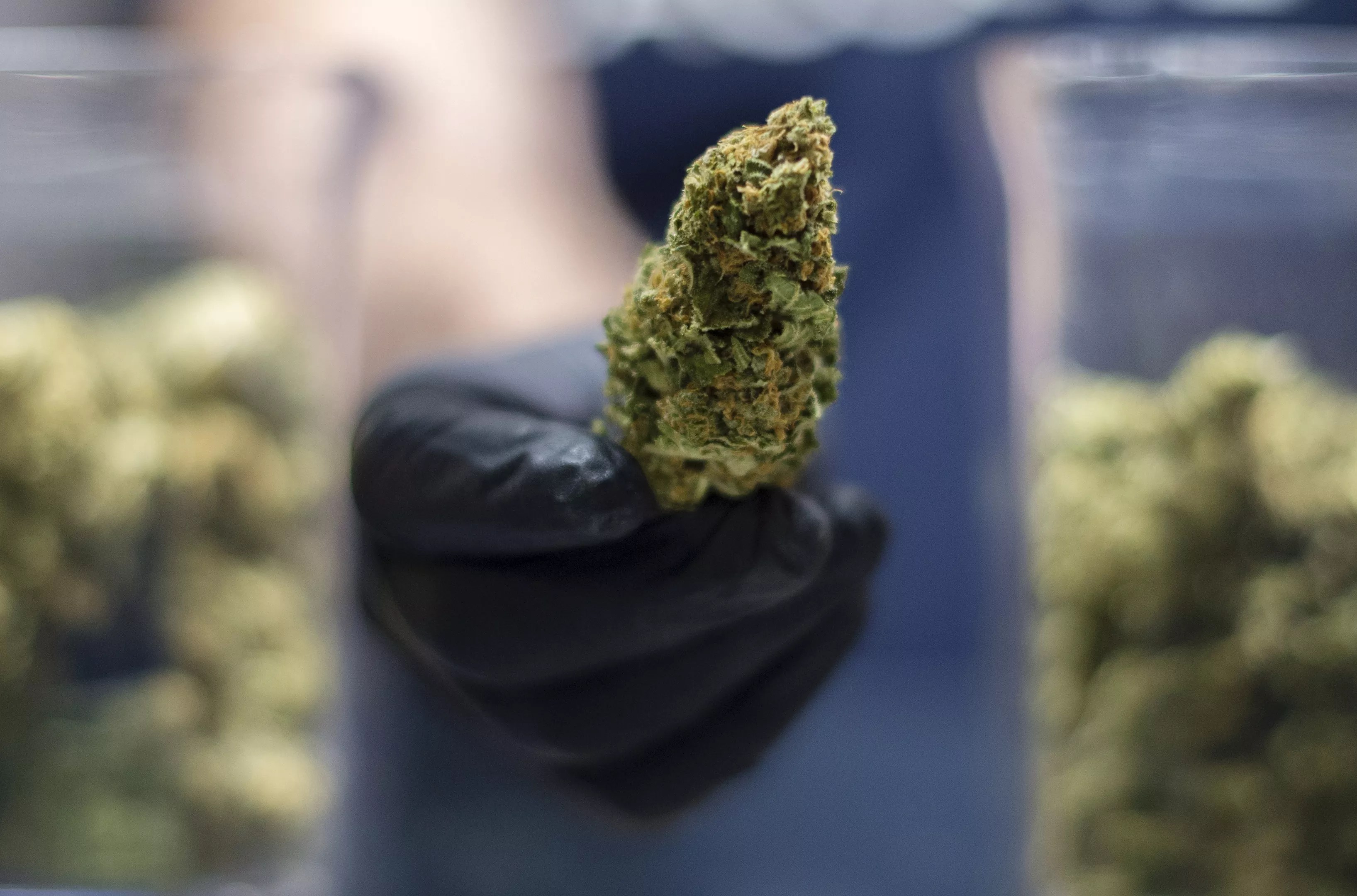
Alberto Ortega/Getty

Audio By Carbonatix
President Joe Biden’s administration has been considering rescheduling marijuana. That could mean something or nothing for Texas.
In August, the Department of Health and Human Services (HHS) formally recommended that the Drug Enforcement Administration (DEA) ease its restrictions on marijuana, which is still federally illegal. HHS recommended that marijuana be moved from Schedule I – where drugs like LSD and heroin sit – to Schedule III. A Schedule I drug is considered to have a high potential for abuse and no accepted medical use. Marijuana has been in Schedule I for decades, even as states like Texas passed their own medical marijuana programs, suggesting, at least to some degree, that the plant does in fact have medical uses.
According to NBC, the HHS recommendation came 11 months after President Biden ordered the health agency to review the drug. The scheduling of marijuana is now in the hands of the DEA. If the agency were to move marijuana to Schedule III, it would eliminate an IRS code that prevents marijuana businesses from claiming tax deductions for business expenses, according to NBC. This could save the industry hundreds of millions of dollars annually.
Some expect the DEA to make a decision on the scheduling as early as this year.
Daryoush Austin Zamhariri, creator and chief editor of the Fort Worth-based Texas Cannabis Collective news site, said rescheduling marijuana could have a tremendous impact on the state. He said Texas has trigger laws that match federal scheduling, as long as the Department of State Health Services (DSHS) doesn’t intercede in less than 30 days.
“There has to be some sort of carve out for all the good work that’s been done on a state-by-state basis.” – Nico Richardson, Texas Original
“If anything, it would continue to force the state to address this issue and would have tremendous impact on [Texas Compassionate Use Program (TCUP)] advancement in the 2025 legislative session,” Zamhariri said. The Texas Compassionate Use Program is Texas’ medical marijuana program.
Of course, the state could decide not to match the federal scheduling.
“Texas may reject the rescheduling and keep the state-level schedule at Schedule I for marijuana products,” Jesse Williams, a writer for Texas Cannabis Collective, said. “We watched recently where DSHS tried keeping parts of hemp at Schedule I, even though the state legislature had passed a law stating otherwise.”
But, rescheduling could mean some good things for the state, Zamhariri said.
“If there is federal rescheduling and Texas takes the steps to match, it has the potential to convince the legislature to radically expand TCUP, engage in Texas-based research and perhaps relinquish more control to DSHS and [the Department of Public Safety] to amend or enhance the program for the future,” he said. “It’s almost been 10 years since we passed the Compassionate Use Act, and yet Texas’ remains one of the most restrictive medical marijuana programs in the country. Texas can and needs to do more for the patients that are in Compassionate Use.”
It all seems pretty up in the air if you ask Nico Richardson with Texas Original, one of three medical marijuana businesses licensed in the state. Asked how rescheduling could affect Texas Original and the state’s medical marijuana program as a whole, Richardson said, “Unfortunately, the answer is we don’t know because we don’t know what Schedule III actually looks like.”
If marijuana just gets moved over to Schedule III, Richardson said products would have to go through Food and Drug Administration approval and clinical trials before ending up on the shelves at pharmacies. “If that happened, it would essentially wipe out every state market, whether they’re recreational or medically legal,” Richardson said. “So, we think there’s actually an incredibly low likelihood that happens.”
He added, “There has to be some sort of carve out for all the good work that’s been done on a state-by-state basis.”
Richardson thinks it’s more likely that marijuana ends up in a sub-schedule of Schedule III. “My guess is that type of rescheduling would essentially leave the state markets as they are to be regulated by the states, while also potentially having some form of interstate commerce,” Richardson said. “But, we have no idea until we see what that language actually is. But, we’re pretty sure it’s not going to be straight Schedule III.”
“It’s really a black box until DEA actually executes on this,” he said.